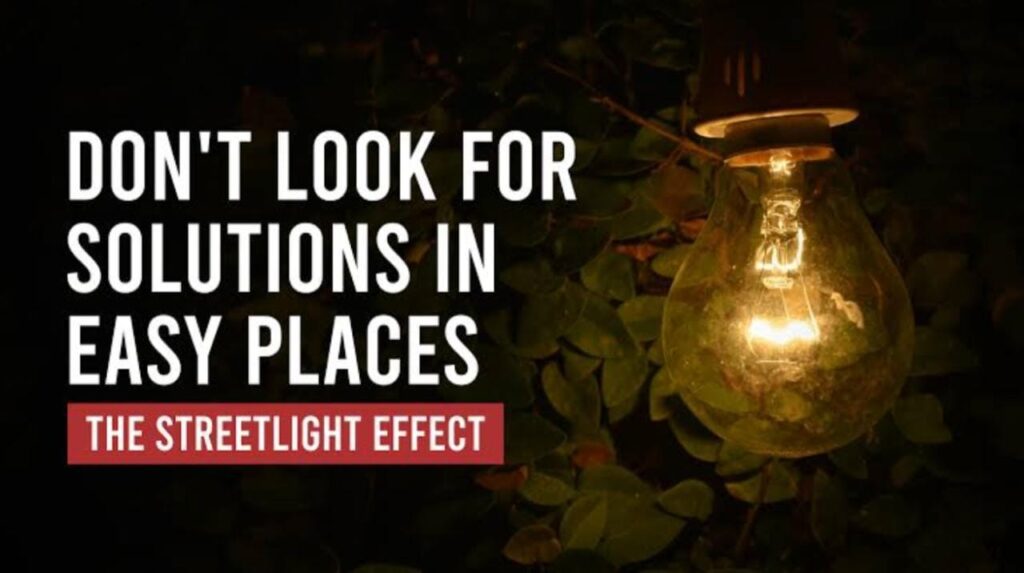10th April, 2023
An old parable sometimes ascribed to Mulla Nasreddin, the 13th Century witty philosopher from today’s Turkey, tells of a drunkard searching under a street lamp for keys he has lost because the light there is better than where he thinks he lost them.
A police officer sees a drunken man intently searching the ground near a lamppost and asks him the goal of his quest. The inebriate replies that he is looking for his car keys, and the officer helps for a few minutes without success. Then he asks whether the man is certain that he dropped the keys near the lamppost.
“No,” is the reply, “I lost the keys somewhere across the street.”
“Why look here?” asks the surprised and irritated officer.
“The light is much better here,” the intoxicated man responds with aplomb.
The “drunkard’s search” or the “streetlight effect” refers to the propensity for people to look for whatever they’re searching in the easier places instead of in the places that are most likely to yield the results they’re seeking.
This is a widespread observational bias.
Even while walking down a street at night, we are more likely to focus on the areas that are illuminated by street lights rather than darker areas in between.
For instance, many Americans who lost their jobs during the two recessions of the ‘lost decade’ of the 2000s sought jobs in the same communities where their factories had closed. They were less inclined to seek long-term solutions to their joblessness and relocate to parts of America where jobs were not as scarce. They had kids in local schools, owned homes that had significantly devalued during the recession, and felt rooted in their communities. They found it more convenient to hope for a revival in their local economies and endure the recession.
We all focus so much on what is visible & easy to see that we miss out on other crucial options & experiences.
As a result most people focus on popular career options, the familiar investment options, most popular advice, the popular movies and books and miss out on the alternative view of things and better options.
Look out for observational biases. Don’t seek answers where the looking is good; rather seek answers where they’re likely to be found.
Intentionally look beyond the obvious & explore new options.
Move out of your comfort zone, challenge yourself to think outside the box & seek out hidden opportunities.
They shall definitely lead you to something better.
Be wary of the ‘Streetlight Effect,’ look for better options & stay blessed forever.

